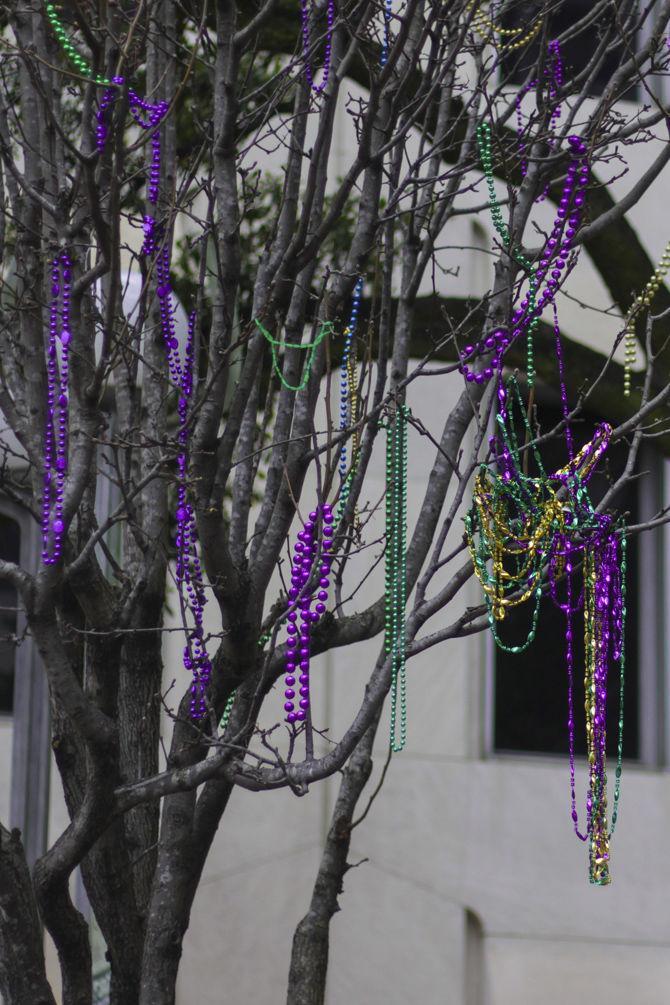Every year, nearly 10 million tourists flock to southern Louisiana to celebrate Mardi Gras. When they leave after a weekend of partying, drinking and eating, an average of 1,000 tons of trash stays behind.
The broken bead strands and candy wrappers strewn along the parade routes are only a sliver of the trash generated by the Mardi Gras season. Every piece of plastic people catch and bring home will make its way to a landfill eventually, whether in a week or a decade after the parade has ended. Furthermore, every Mardi Gras bead had to be made and shipped from somewhere (often overseas), making for an incredible waste.
Suggesting that Mardi Gras parades do away with throws entirely is unrealistic. Floats in Louisiana have thrown goods to crowds since the early 1870s, so Mardi Gras revelers are unlikely to stop yelling, “Throw me something, mister!” anytime soon.
This yearly cycle of waste can be stemmed by establishing a robust system of reusing beads year after year. Ideally, cities in Louisiana would establish collection points for people to return Mardi Gras beads and other plastic goods in the weeks following the season. These throws could then be sold back to private krewes to be reused the next year.
Although a considerable fraction of throws are bound to be lost in this cycle of throwing, catching and returning, it would nonetheless put a dent in the plastic waste of the Mardi Gras holiday. Moreover, establishing a system for reusing beads is not a novel idea. Organizations like Arc of Greater New Orleans already have systems in place, with a majority of repackaged beads being sold back to individuals or businesses, not krewes. However, even though this process reduces the beads going to landfills, it does nothing to stem the steady stream of plastic into Louisiana at the beginning of every Mardi Gras season.
An internal cycle that continually swaps beads between the throwers and the catchers would reduce the need to buy new beads shipped from abroad year after year. Mardi Gras attendees should also be more conscious of their personal waste, even within the carefree celebration of the holiday. An easy remedy for individuals to adopt is to dispose of empty beer cans and other waste in trash cans and recycling bins.
Although this will make no difference in the amount of trash generated by the Mardi Gras season, it will at least diminish the amount of litter that finds its way into our bayous and rivers. Mardi Gras may be a crucial facet to the Louisiana identity, but so is our designation as “the Sportsman’s Paradise.” By striking a sustainable balance between the fun of Mardi Gras and the preservation of our unique ecosystems, we can ensure that our state prospers for many more Mardi Gras seasons to come.
Cécile Girard is a 20-year-old psychology sophomore from Lake Charles, Louisiana.
Opinion: Mardi Gras needs to become more environmentally friendly, implement less wasteful practices
February 25, 2020





